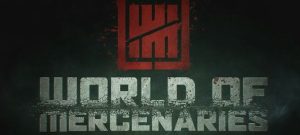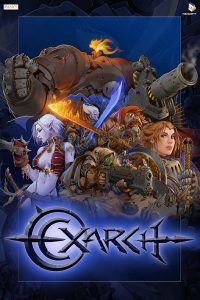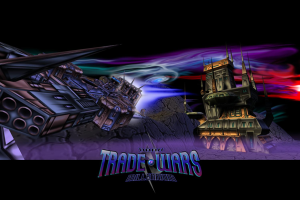Project 1V1 is a cancelled Free-To-Play multiplayer First-Person Shooter/Collectible Card Game hybrid developed exclusively for PC by Gearbox Software, from, at least, 2017 until 2022.
The game tried to be a competitive Esport Arena shooter, similar to titles such as Quake 3: Arena and Unreal Tournament, that faced two players against each other, each with three cards that confered special abilities.
Project 1V1 was officially revealed by Gearbox in August 2017 while, in the same time, announcing that they were holding a closed beta test for the game:
Borderlands and Battleborn developer Gearbox Software is working on a competitive first-person shooter that “combines the action of fast-paced 1v1 first-person combat with the metagame strategy of a collectible card game,” according to the project’s website. Gearbox is calling the in-development game Project 1v1.
Gearbox said on its website that it’s holding a short, closed technical test for Project 1v1. Players who are interested in taking part can sign up for the beta on Gearbox’s Shift website. (…)
The Project 1v1 website doesn’t offer much detail on the game beyond naming a trio of modes (ranked, challenge and arena) playable in the technical test. Players will apparently be able to earn crates and new cards by defeating opponents in Project 1v1’s ranked mode. (…)
Shortly after, some gameplay videos of the beta were uploaded on YouTube, before being taken down. Other than that, Project 1V1 didn’t resurface before E3 2018 where the title was showcased behind closed doors:
Borderlands fans will be frustrated to hear that Gearbox is showing a new shooter at E3 2018 to press – but it’s not the highly-anticipated Borderlands 3. Instead, Gearbox is showing it’s 1v1 multiplayer shooter and card hybrid. It’s a relatively secretive project, having been in a closed technical test last August. No footage of Project 1v1 will be shown outside of the closed doors presentation at E3, although you can expect some hands-on written impressions. Presumably we’ll also learn it’s proper name. (…)
Just after E3, numerous previews were indeed written. Thus, for example, Mediastinger wrote:
In Project 1v1, Gearbox is attempting to merge the competitive arena shooter genre with the growing popularity of watching esports. In the Arena Hangout mode, multiple players queue into a room while the game stays in windowed mode on PC. Players who are not going head-to-head in the arena are able to watch the current 1 vs. 1 battle in spectator mode while still chatting and cycling through all of the game’s menu options such as abilities, cosmetics, deck-buying/building, and more.
Other modes are planned to offer more serious instant action while the actual gameplay is what you would expect from an arena shooter that plays very smooth like a game of Deathmatch in Quake or Unreal Tournament – except with unique powerups such as turrets, tracking satellites, and even powerful swords that can be called down and need to be protected for a brief period before being picked up and used to instantly slay foes.
While gameplay was fun, Project 1v1 seems like Gearbox’s attempt to salvage their hard work from Battleborn… and I’m not sure how it can be successful in the current gaming market. The game’s main gimmick is focusing on 1v1 gameplay, a concept that is the opposite of the current demand from gamers who want instant large-scale action — which battle royale games have recently become so successful delivering.
Project 1v1 is still in a very early stage and could change drastically in the future as new modes are added. Right now, the game is currently only planned for PC and still has no release date, or even any actual footage available to be shown online.
For it’s part, Twinfinite was more enthusiastic:
(…) At E3 2018, I visited the folks at Gearbox to sit down and play an alpha build of Project 1v1 that was being shown to the press. It was the very first time the game was being shown outside of the studio.
You can imagine my surprise, then, as I discovered a game that already felt incredibly well-polished. Of course, 1v1’s UI will likely go through a number of iterations before its eventual release, but a slick menu already presented several different character designs, allowed me to experiment with a range of different weapons and abilities, and play a handful of different maps. But it was in the gameplay that things felt impressively far along. Project 1v1 is sublime to play; the gunplay and traversal felt great, there were no bugs or crashes, and each match ran as smooth as silk.
The arsenal of weapons included plenty of your typical FPS selection, but there were some inventive standouts too. Beyond light machine guns, shotguns, and rocket launchers, there were neat weapons like the railgun – a super powerful rifle with a secondary fire option that allowed you to shoot across the map with the bullet by pressing the right mouse button. And it was a similar story with abilities, too. Three cards can be selected for special skills, activated at the press of a key and differing in cooldown according to strength. These ranged from passive recovery buffs to sentry guns that could be placed to cover a choke point. My absolute favorite was the Excalibur – a sword that, once planted in the ground for a few seconds, could be wielded to devastating effect. Slightly OP, perhaps, but hilariously fun to shoot across the map and instant frag an opponent.
1v1’s maps are like a condensed version of a classic arena-shooter, complete with a balance of cramped hallways, mini choke-points, a wide open space or two, and designed with plenty of verticality. It would take you less than a minute to circumnavigate any one of them, but they all had been crafted in a way that let you quickly put distance between you and your opponent by dashing around a corner or hopping onto an above ledge. Some had strategically located springboards so you could quickly ascend to a map’s highest level. Aesthetically, some were more interesting than others, but I absolutely adored one, in particular, set against the backdrop of a dystopian futuristic city.
The local network I was playing on consisted of only four players at any one time, which worked well for 1v1’s curious multiplayer setup. Given that the game is specifically designed for duels, other players spectate while waiting in a queue. With a limited number in the server, the wait was never long, but I do wonder how things are supposed to work when there are three, four, or ten times that number. Gearbox didn’t have an answer for me when I enquired as to many players are likely to be pooled in a single server moving forward.
As it turns out, each match was so intense that I genuinely enjoyed my time spectating, and it was super fun to hear people gasp and cheer at my own efforts. But not every 1v1 match is going to be so entertaining, and the novelty of the format would only last so long. It remains to be seen how this all translates to a full release. Not to mention, while I definitely appreciated the bespoke 1v1 map design and the entertainment value of duking it out with a single opponent, I can’t say that the game wouldn’t be just as fun with a few more players in a server with me. 1v1 is great, but why not 2v2 and 3v3 as well?
As of right now, the foundation is in place for Project 1v1 to make a big splash on the free-to-play scene. I thoroughly enjoyed the gameplay, the performance was exemplary, and the card system is a blast. It needs fleshing out, of course, but assuming that there’s an audience out there ready to embrace it, the future looks bright for Gearbox’s unorthodox shooter.
Finally, a similar feeling was also shared by WayTooMany.games:
(…) I have managed to play the game for around half-an-hour (and countless rounds) at a private appointment at Gearbox’s room during E3, and I have to admit, I did enjoy what I saw. I did see a lot of potential in what they’re creating, but with a few concerns.
The gameplay is great. The game is extremely fast-paced, just like an old Unreal Tournament, the matches are very quick, the respawn times are nonexistent and the few weapons I could test were diverse, balanced and fun to use.
Just like older Unreal Tournament games, there is no aim button, there’s no auto-healing (you can heal by picking up health icons scattered throughout the stage), and there are lots of traps scattered throughout the stage, such as pits. The level design is creative, even though I have only managed to play on three different maps. Besides your two weapons, you can equip yourself with different perks, such as an ultimate rocket attack and an extra jump. Whenever you use your special moves, you need to wait for them to recharge. You can also pick up a card icon to get an instant recharge. From what I could play, Project 1v1 looked promising: a nice throwback to simpler, arcade-oriented shooters, with a lot more emphasis on chaotic fun than realism.
With that being said, I still have a few concerns about the game.
One of the main concerns is regarding waiting times. As previously mentioned, the game is based around 1 vs 1 matches, meaning that everyone else in your room needs to wait for quite some time before being able to play the game. Depending on the amount of people inside your lobby, you’ll have to wait for up to 15 minutes in order to play a 5 minute round. The game automatically shrinks its screen size during the waiting moments, most likely in order to let players mind their own business surfing through the internet or doing something else on their PCs while they wait for their turn.
I feel some balance needs to be made regarding it, with multiple duels happening at the same time, in order to keep people busy. That’s also a great way to promote championship creations. I don’t know if Gearbox has this plan in mind, but I really hope they come up with something like this when the game finally comes out. (…)
After that, Project 1V1 felt again into oblivion, only being briefly mentionned in July 2019 by French website NoFrag.com, announcing that a new closed beta test was on its way:
(…) If you are a fan of Randy Pitchford‘s games, or frankly have some time to kill, you will be delighted to learn that this future Free-to-play is opening up to a new closed test session, subject to an NDA (no authorized videos, or even screenshots). To participate, you will need to go through the Gearbox site, SHiFT, and link your Steam account there.
Compared to the previous test session, this one adds 3 maps to the 2 already existing, new playing cards and a revamped interface.
From there, it looked like things were getting tougher for the game. Again forgotten by everyone, it came back once again from the dead, in July 2021, when someone on Twitter/X asked Gearbox CEO Randy Pitchford whatever happened:
On going. The pandemic shook us up a bit, but we went through a chrysalis and I am excited for what will emerge.
Unfortunately, it seems that this revival was ultimately a waste of time since during the summer of 2022, the cancellation of the game was officially announced on Reddit:
Hey Project 1v1 faithful, I am finally able to share some news about Project 1v1, the server, and the community.
It is my unfortunate privilege to let you all know that I’ve been notified through official channels that there “are no plans to resume development”. I know this is a heartbreaking thing to hear for most of us, but unfortunately this is just something that happens in the world of video game development.
With that news being official, and after some discussion, we’ve made the choice to close down the Discord Server. The server closure will take place on September 1st 2022. This will give everyone here ample time to be able to jump onto servers with one another and create your own internal communities to duke it out in other games if you wish. I didn’t want to shut the server down right away because I know a lot of the folks here made friends along the way and I wanted to make sure we all had the opportunity to keep those connections.
I appreciate everyone that has been a help to the community, donated for giveaways, participated in events and the playtests! While we may not get the end result we were hoping for, I am sure we have helped the team inside of Gearbox Publishing in many ways. I know I feel feel proud to have had an impact in that way and so should us all!
It is unclear to this day why Gearbox made the decision to cancel Project 1V1. We can speculate that in a very competitive market, whether it was the Collectible Card Game’s aspect or the arena shooter, it was difficult for a new original title to be a financial success. Battleborn, itself built on the remnants of Brothers in Arms: Furious 4, was a dismal failure, and a comparison can also be made with The Amazing Eternals, very similar to Project 1V1, and which was canceled precisely because of this competitive market.
Video:
Images:




